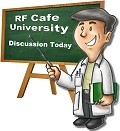The Good Trojan
|
|
1 | 2 | 3 | 4 | 5 | 6 | 7 | 8 | 9 | 10 | 11 | 12 | 13 | 14 | 15 | 16 | 17 | 18 | 19 | 20 | 21 | 22 | 23 | 24 | 25 | 26 | 27 | 28 | 29 | 30 | 31 | 32 | 33 | 34 | 35 | 36 | 37
The Good Trojan A security battle is ensuing between operating system proponents for Windows, Linux, Mac and others. Open Source code like Linux is coming under attack for being too vulnerable to subversive hackers that can slip in latent code for malicious exploitation at a later date. Like with any other panel of "experts," nobody agrees on who is right, but all agree that these systems being integrated into combat systems must be absolutely secure. Lest you be tempted to think nothing serious could ever happen, consider the famous "Farewell Dossier" report. During the 70s and 80s, Soviet spies were on a rampage stealing secrets from the U.S. and other Western countries. In 1982, the CIA slipped some Trojan horse code, known as "Line X," into some software known to be targeted by the spies. "Farewell" was the Soviet engineer assigned to analyze the stolen code. Line X operatives deployed the buggy software on a Siberian gas pipeline project. To make a long story short, the hidden code eventually caused a 3-kiloton blast still considered to be the most ferocious non-nuclear explosion and fire ever seen from space. QED. |
 "
"